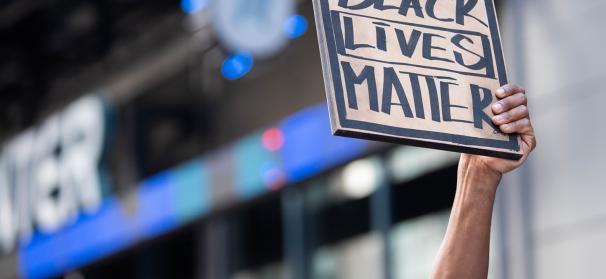Barry Friedman
- Jacob D. Fuchsberg Professor of Law
- barry.friedman@nyu.edu
- Vanderbilt Hall 317 • 212.998.6293
- Assistant: Lucy Larkins ll3195@nyu.edu
ll3195@nyu.edu
AREAS OF RESEARCH
Constitutional Law and Theory, Federal Jurisdiction, Federalism, Fourth Amendment, Judicial Behavior, Judicial Review, Policing
Barry Friedman is a leading authority on constitutional law, policing, criminal procedure, and the federal courts. He is the author of The Will of the People: How Public Opinion Has Influenced the Supreme Court and Shaped the Meaning of the Constitution (2009) and Unwarranted: Policing without Permission (2017). Friedman is the founding director of NYU Law’s Policing Project and the reporter for the American Law Institute’s Principles of Law: Policing. He publishes regularly in the nation’s leading academic journals in the fields of law, politics, and history; his work also appears frequently in the popular press, including the New York Times, Slate, the Los Angeles Times, Politico, and the New Republic. Friedman has served as a litigator or litigation consultant on a variety of matters in the federal and state courts, and has had a long involvement with social change issues. In addition to his conventional courses in Constitutional Law, Federal Courts, and Criminal Procedure, Friedman teaches seminars in policing and a new course entitled Judicial Decision-making that marries social science about judging with normative and institutional legal questions. He, along with co-authors from law and the social sciences, published Judicial Decision-Making: A Coursebook (2020). Friedman also is the author of Open Book: The Inside Track to Law School Success, and speaks frequently on the subject. Friedman graduated with honors from the University of Chicago and received his law degree magna cum laude from Georgetown University Law Center. He clerked for Judge Phyllis A. Kravitch of the US Court of Appeals for the Eleventh Circuit.
Judicial Decision-Making: A Coursebook
Courses
-
1L Reading Group: The Borders of Law Enforcement
In the conventional account of American criminal law, states define crimes; localities enforce criminal laws; and the federal government steps in when crimes cross state lines. But reality defies this paradigm. Increasingly, law enforcement is crossing state lines, or threatening to. This trend is particularly salient in debates about criminalization in one state of abortions performed in another. But concerns about the reach of the criminal code extend to everything from marijuana, gambling, and alcohol to immigration regulation and cybercrime. This reading group will explore the structure of the American legal enforcement system, with a particular focus on recent developments that have undermined the traditional borders of law enforcement and expanded state capacity. Topics covered include the rise and fall of drug prohibition, extraterritorial criminal laws (including efforts to police abortion across state lines), and cross-jurisdictional surveillance (such as license plate readers and fusion centers).
-
Criminal Procedure: Fourth and Fifth Amendments
This course covers the first half of the criminal process, focusing on police investigation of crimes, together with police practices on the street, police use of surveillance technologies, and police practices more generally. Much of the relevant law has been constitutionalized; thus, the primary focus of the course is on the Fourth and Fifth Amendments. The topics emphasize the law of search and seizure, interrogation of suspects by the police, and underlying policy issues.
-
Criminal Procedure: Police Practices (for 1Ls)
This course studies how the police and other government agencies “police” society and investigate crimes. It deals with fundamental issues concerning the relationship between the state and the individual, and raises critical concerns about surveillance, force, racial justice, and basic civil liberties. Topics include police stops, frisks, searches, uses of force, electronic surveillance, and police questioning and interrogation. Much of the relevant law has been constitutionalized; thus, the primary focus of the course is on the Fourth and Fifth Amendments, although we also will pay attention to state constitutions and some relevant statutory law. This course is essential starting ground for anyone interested in practicing in the criminal justice space, be it direct services or law reform, but will be of interest to anyone concerned about some of the paramount issues of the day: data mining and DNA collection, the war on terror and wiretapping surveillance, the war on drugs, racial profiling, pandemic contract-tracing, and the like.
-
Furman Scholars Seminar
Seminar for Furman Scholars Program
Publications
- "Indiscriminate Data Surveillance," Va. L. Rev. (forthcoming) (with Danielle Keats Citron)
- "The Federal Government’s Role in Local Policing," 109 Va. L. Rev. 1527 (2023) (with Rachel Harmon and Farhang Heydari)
- "Lawless Surveillance," 97 N.Y.U. L. Rev. 1143 (2022)
- "Disaggregating the Police Function," 169 U. Pa. L. Rev. 925 (2021)
Education
- JD, Georgetown University Law Center, 1982
- BA, University of Chicago, 1978
© 2024 New York University School of Law. 40 Washington Sq. South, New York, NY 10012. Tel. 212.998.6100

